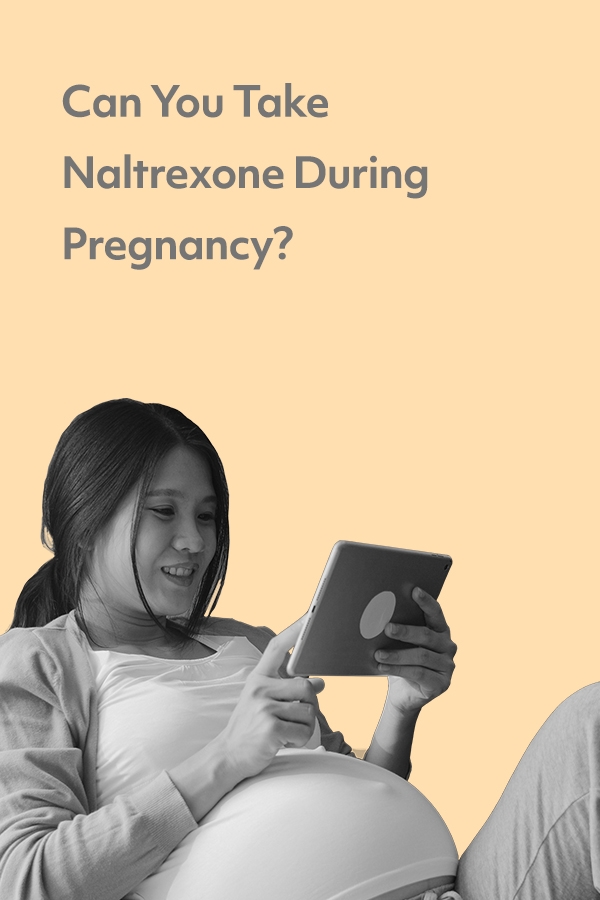Pregnant with opioid use disorder? Doctors recommend medication-assisted treatment, including methadone or buprenorphine. But what about naltrexone?
The topic of substance use and pregnancy is touchy for many people, eliciting a knee-jerk negative reaction. But facts are facts, and the numbers show that rates of maternal opioid use disorder (OUD) at hospital delivery have been rising sharply. Between 1999 and 2014, they more than quadrupled. Since the reality is that many people who use opioids also become pregnant, we must focus on the critical question: How can we reduce the risks when OUD and pregnancy coincide?
Because the use of opioids during pregnancy is such a hot-button issue, you might think that quitting cold turkey would be best. You would be wrong! The American College of Obstetricians and Gynecologists recommends the use of medication-assisted treatment (MAT) as “preferable to medically supervised withdrawal because withdrawal is associated with high relapse rates, which lead to worse outcomes.” Suddenly stopping opioids and suffering withdrawals puts both the parent and fetus at higher risk.
Medication-assisted treatment during pregnancy
Treating substance use disorder with medication (as in medication-assisted treatment, combining FDA-approved addiction medicine with behavioral health support) has become widely recognized as the most effective care for opioid use disorder. The US Department of Health and Human Services and the National Institute on Drug Abuse both endorse MAT for the simple reason that it saves lives. MAT increases the likelihood of long-term recovery and decreases the risk of relapse. It can also mitigate withdrawal symptoms, which people who have suffered through them often describe as “hellish.”
The two medications most commonly prescribed for opioid use disorder during pregnancy are methadone and buprenorphine. Both have advantages and drawbacks. Because both are opioids, there is still a chance that the baby may experience neonatal abstinence syndrome (NAS) when buprenorphine or methadone are taken throughout the pregnancy, but this is still much safer than the erratic highs and lows, withdrawal symptoms, and risk of overdose associated with illicit opioid use. If you’re pregnant, discuss MAT options with your doctor to determine which would be better for you. Workit Health clinicians prescribe Suboxone (buprenorphine/naloxone) to pregnant members when indicated, but do not prescribe methadone.
I mentioned methadone and buprenorphine, but you may have noticed the omission of naltrexone, which is also used to treat opioid use disorder and alcohol use disorder. Can you take naltrexone during pregnancy? Theoretically, the answer is maybe, depending on your situation and the prescribing physician. But unless your situation is unique, in real life the answer will probably be no.
The FDA has classified naltrexone as a Pregnancy Category: C drug*. This means that studies in animals show some adverse effects, but that human studies are lacking. With medications in this class, there may be risks but in some cases the benefits outweigh those risks. A category C classification on its own isn’t insurmountable; both Suboxone (buprenorphine/naloxone) and methadone fall into this category as well, and they’re both regularly prescribed during pregnancy.
Why don’t doctors prescribe naltrexone during pregnancy?
There are three main difficulties with prescribing naltrexone during pregnancy. The first is that the human studies really are lacking. The sample sizes tend to be small and not necessarily representative of the population, and many of them focus solely on extended-release injections or implants of naltrexone, rather than the oral form that more people have access to from their local pharmacies. Many clinicians hesitate to prescribe a medication with so little literature supporting its safety during pregnancy.
The second difficulty is the evidence of adverse effects in animal testing. With the caveat that the subjects in animal studies are usually administered proportionally large doses that don’t follow the usage patterns that humans would engage in, these studies do provide valuable information. In animals, naltrexone has been linked to abnormal growth rates of fetuses, disrupted regulation of brain cell development, and a life-long insensitivity to opioids. It is not clear whether these effects would be present in humans, or to what extent they would influence growth and development. But many doctors prefer to err on the side of caution during pregnancy.
The third obstacle to prescribing naltrexone during pregnancy is the nature of the medication. Naltrexone is an opioid antagonist. It binds to the opioid receptors in the brain and blocks the effects of any opioids in your system. That means if you have opioids in your body, naltrexone will block them and cause precipitated opioid withdrawal. This is typically more severe than withdrawal that occurs naturally. Remember the quote above from the American College of Obstetricians and Gynecologists that pregnant people should avoid withdrawal because it is associated with high relapse rates and less favorable outcomes? This is especially true of precipitated withdrawal.
The bottom line
For these three reasons—inadequate human studies, adverse findings in animal studies, and the increased risk of withdrawal—most doctors are very hesitant to prescribe naltrexone to a pregnant patient. If you are pregnant and believe that naltrexone is the only viable route for MAT for you, discuss it with your doctor. Just be aware that they are likely to advise against it. Luckily, methadone and buprenorphine are available to many who are balancing pregnancy and recovery from opioid use disorder.
*Note that the FDA replaced lettered pregnancy risk categories with new labeling information in 2015. The old categories still provide a helpful snapshot of medical thinking about a drug.










